Let’s call the man with his sleeves rolled up Enver. This 34-year-old Kosovan, who lives in Basel, is skilled at using a trowel and mortar. He turns up at his workplace day in day out with Swiss punctuality. But he is not considered “well integrated”. He speaks German poorly. If the caretaker at his apartment block writes “do not put rubbish bags outside the evening before collection”, Enver misunderstands the notice and puts his refuse in front of the door. He doesn’t want to be the last. He often settles invoices much later than is customary in Switzerland. He is often not in credit. Enver has debts and is paying off various small loans.
Integration by contract
Enver is today sitting in the migration office reading a document written in his mother tongue: “Kjo Marrëveshje e Integrimit duhet të kontribuojë që të nxitet integrimi në rrafshin individual...”. He puts his signature at the bottom without hesitation. He has just signed an integration agreement – a contract between himself and the canton of Basel Stadt. He has contractually undertaken to learn German and to attend the debt advice centre. His goal is simple – the Kosovan wants to improve his and his family’s future prospects. If Enver had aggressive tendencies, he could also have been obliged to attend a course on the prevention of violence. But this measure is not required in his case.
Great emphasis on promotion
Every year his home canton of Basel Stadt requests around 50 foreigners from non-EU states to sign an integration agreement. This is carried out as an “integration promotion measure”, explains Andreas Knuchel, spokesperson for the Department of Justice and Security in the canton of Basel Stadt. What is referred to as integration promotion is nevertheless coupled with requirements. Anyone who does not pursue the agreed objectives receives a caution and then, as a second step, a warning. In extreme cases, those who fail to comply lose the right to stay in the country. The objectives are fully or partially achieved in two thirds of all cases, points out Knuchel. In the other cases the migration office considers “further measures”. Basel is no exception. More and more cantons are adopting this approach in order to encourage foreign citizens to show greater awareness of the practices of Swiss life and everyday rules.
Everything’s clear in principle
It is obvious why integration is an issue for federal government, the cantons and the communes. On the one hand, it is an experience common to all that well integrated immigrants frequently make a significant contribution to the nation’s prosperity. On the other, the widely held view is that everyday life - such as at school - is more difficult without integration. But, above all, integration is a statutory duty. The Swiss Foreign Nationals Act indicates why: it strives for the “co-existence of the resident Swiss and foreign population on the basis of the values of the Federal Constitution and mutual respect and tolerance”. However, the act also sets out how this is to be achieved. Integration can only succeed if it is supported by the resident population. It depends not just on the will of the immigrants but in equal measure also on “the openness of the Swiss people”.
Change in political mood
The limited linguistic skills of the construction worker Enver have one advantage – it means he is not so directly aware of how contentious the current debate over the future direction of Swiss integration policy is. The buzzword of immigration ostensibly dominates the discussion. However, the struggle over the implementation of the initiative on mass immigration adopted by the Swiss people on 9 February 2014 is also seeing a change in the political climate for immigrants already in Switzerland. The Federal Council sought to amend the Swiss Foreign Nationals Act long before the referendum because it wants to strengthen the principles of integration promotion and commitment. The country’s biggest political party, the Swiss People’s Party (SVP), is opposed to greater state intervention. The party which is calling the tune over policy on foreigners adopts an apodeictic stance in its position paper on integration: “Integration is not a duty of the state but primarily one of the immigrants – it is a consequence of their decision to choose to live and work in Switzerland.” The phrase coined by the SVP is: “Integration is not a self-service store.” Integration is viewed as a reciprocal act, on the one hand, and as a private duty on the other. The positions are far apart and it is consequently unclear where the journey will end.
Hardening of views
Those supporting foreigners with their efforts to integrate regard the referendum of 9 February 2015 as a major turning point. Heidi Mück from FIMM (Forum for the Integration of Immigrants), the umbrella association of immigrant organisations in Switzerland, views it as a setback: “Many of the foreigners living here feel they are no longer wanted after the referendum.” “Conditions have beome tougher” for integration policy and its actual objectives of “granting those who live, work and pay taxes here the greatest possible participation”, according to Mück. Switzerland is currently a long way off an objective debate on integration. As evidence of this she points to the lowered thresholds in the media. With generalising statements – such as about “Kosovan speed merchants” – prejudices are being fostered and reinforced. Mück’s greatest concern is that “the political debate has also taken on a harder tone. Buzzwords such as ‘bogus asylum seekers’ and ‘welfare benefit cheats’ are entering the vocabulary of national politicians.”
Demographic change continues
While Enver studies German and the politicians struggle to find solutions to immigration and integration, demographic change in Switzerland continues. Major upheaval is taking place. The number of people emigrating is high, reaching 78,000 in 2013. But the number of immigrants is significantly higher at 167,000. There is a significant positive net migration balance overall. The number of immigrants is significantly lower than in the 1960s when up to 210,000 people (1962) flooded into the country, including many Italians keen to work. Integration experts also like to highlight this as an example of Switzerland’s great capacity for integration. The current evidence of this capacity is the fact that most of the 1.8 million foreigners living in Switzerland have integrated into society without major issues.
Grounds for controversy
It is just that the commitment to integrate being demanded has not been equal for all foreigners for some time. This leads to unequal treatment. It is possible theoretically that EU citizens living in Switzerland can be obliged to meet requirements through an integration agreement, in the same way as the Kosovan Enver. However, this does not happen in practice. And the requirement that those who reside here cannot live in a parallel world and must therefore speak a national language does not apply to everyone: Well-healed and exclusively English-speaking specialists, who – like those in the financial sector – live in a parallel world completely divorced from everyday Swiss life, remain unaffected by the integration requirements. In contrast, there are those willing to integrate whose integration is viewed as highly contentious by the majority of the population. It is believed that perhaps 100,000 immigrants live in Switzerland illegally – they are known as “sans-papiers” – in some cases having lived and worked here for decades. As they have no residence permit, the “sans-papiers” are often exploited. Left-wing parties and human rights organisations are therefore urging the legalisation of their residence status. At the other end of the political spectrum, such issues spark absolute outrage. “This trivialisation of the ‘sans papiers’ issue by the centre-left majority and references to supposed basic rights undermines Swiss policy on foreign nationals,” says the SVP. Its simple demand is: “Those living here illegally must leave Switzerland.”
The example of religion
Should foreigners earn respect by proving their willingness to integrate? Or must respect be shown in order for them to demonstrate their willingness to integrate in the first place? This question raises its head time and time again. It is particularly pertinent in relation to Switzerland’s relationship with the around 400,000 Muslims living in the country. The proposal to consider recognising Muslim faith communities to improve the integration of young Muslims and to prevent the formation of a parallel society does not currently have majority support in Switzerland. Muslims are therefore not just under pressure to assimilate but also under continual pressure to justify themselves. Muslim pupils at the Niederhasli secondary school in the canton of Zurich recently expressed their feelings in a report on the German-language Swiss radio station SRF. They constantly have to apologise for acts of terrorism despite the fact that they are just as appalled and shocked by them as their non-Muslim friends.
The perpetual shifting between marginalisation and the requirement to assimilate has seen the integration of Muslims in Switzerland decline over the past decade. At least this is the conclusion pointed to by federal government’s marriage statistics. In 2001, half of all Muslims married someone from another religious community. Intermarriages are still regarded as a reflection of an unstrained exchange between cultural groups. Twelve years later, in 2013, marriages between Muslims and persons of other faiths were the exception. Over 80 % married within their own faith community. This is explained by the continuing scepticism of mainstream society towards Muslims, according to the sociologist Farhad Afshar who is originally from Iran. This view is also shared by the Swiss Bishops’ Conference.
A challenging issue for Sommaruga
“Immigration is a difficult issue. There is tremendous pressure.” This is the view of President of the Swiss Confederation and Minister of Justice Simonetta Sommaruga (SP) a year after the adoption of the initiative on mass immigration. The wrangling with the EU continues owing to the curbing of immigration demanded by the Swiss people. In spite of the uncertainty, the Minister of Justice has clearly indicated that the new regulations on immigration must not be allowed to create a new integration problem. In particular she opposes the idea of again bringing labour into the country without the right for family members to follow. “The Federal Council does not want any more seasonal workers. We had a statute on seasonal workers. This had the dramatic effect that women and children had to hide themselves away for years,” Sommaruga said. The Minister of Justice is facing a cool response over the issue of immigration and integration from both the left and right of the political spectrum. Election year is making matters more difficult. As the temperature of the political debate rises, the political will to reach consensus dwindles.
Adaptation or assimilation?
Those dealing with specific integration issues on a day-to-day basis are also bracing themselves. FIMM representative Heidi Mück anticipates “further battles to protect basic rights”. A constant contentious issue is that many people talk about integration but mean assimilation. However, when pressure on foreigners increases not just to integrate but also to adapt to the point of surrendering their cultural identity, matters become extremely complex: “If assimilation is the objective, this raises the question of assimilation to what? The ‘Swiss’ is still a very heterogeneous being. There is no such thing as a typical Swiss person.” The Zurich-based philosopher and expert on the ethics of immigration Andreas Cassee underlines this point even more emphatically. In most European countries, there is no longer any “uniform culture” into which people can be expected to assimilate. “A Catholic from a remote valley in Valais has little in common with an urban hipster from Zurich,” he says. While foreigners are accused of lacking the desire to integrate, it is in truth often more an expression of discontent over the diminishing acceptance of one’s own nostalgia, explains Cassee.
The building site as a school room
On every building site there are practically minded people who adopt a pragmatic approach without talking politics at length. This has not escaped the notice of Enver, the worker to be integrated who has been requested by the authorities to finally learn German. He is making good progress as he is not just attending the stipulated language course. His employer is providing him with additional tuition during working hours. “German lessons on the building site” is the name of the pilot scheme being run by the Swiss Construction Federation (SBV). Such commitment stands to reason from the federation’s point of view as the construction sector employs a disproportionately high number of people with foreign mother tongues, as Matthias Engel from the SBV indicates. But construction firms also offer other opportunities. In Sursee in the canton of Lucerne those recently recognised as refugees and people with provisional refugee status receive training on a one-year course. This enables them to subsequently complete bricklaying apprenticeships and help build Switzerland’s future.
19-year-old Elizabeth Okisai, who has just begun her apprenticeship as a car mechanic with the public transport company in Zurich, is also a symbol of this change. Why does she deserve mention? The young Kenyan, who once lived on the streets, is the first illegal immigrant to undertake a vocational apprenticeship in the canton of Zurich. Her case is representative of a gradual counter-trend: in the past, refugees, those with temporary refugee status and illegal immigrants were condemned to doing nothing upon reaching adult age. However, those unable to do anything cannot integrate or be integrated.
Restrictions require integration
Eleonore Wettstein, head of the Basel integration information centre, is willing to see the “issue of integration” as an opportunity in light of such trends. If immigration were restricted and more demands were placed on immigrants already living in the country, this would also result in the “positive development of federal government making a greater effort to integrate refugees into working life, in particular in the care, construction and catering industries”. Wettstein remarks: “Refugees were often exploited owing to their poor knowledge of German or condemned to a life doing nothing.” The opportunity for initial or advanced training is now being opened up to them. As these people are extremely likely to remain in the country in any event, this approach is “very prudent”. They are effectively “also future Swiss citizens”.
Marc Lettau is is an editor with the “swiss review”
Switzerland – a country of migration
Switzerland has seen high levels of migratory activity for centuries. A large wave of immigration during the 16th century led to an increase in the population. At the end of the 17th century, tens of thousands of Protestant refugees immigrated to Switzerland from France. The French Revolution also led to migratory movement eastwards. In contrast, the 19th century was marked by an exodus spanning decades, with the Swiss leaving Switzerland. Strong immigration only returned at the end of the 19th century owing to increased demand for labour from the Swiss economy. The proportion of foreigners climbed to almost 15% by 1920. Most immigrants at that time came from Germany.
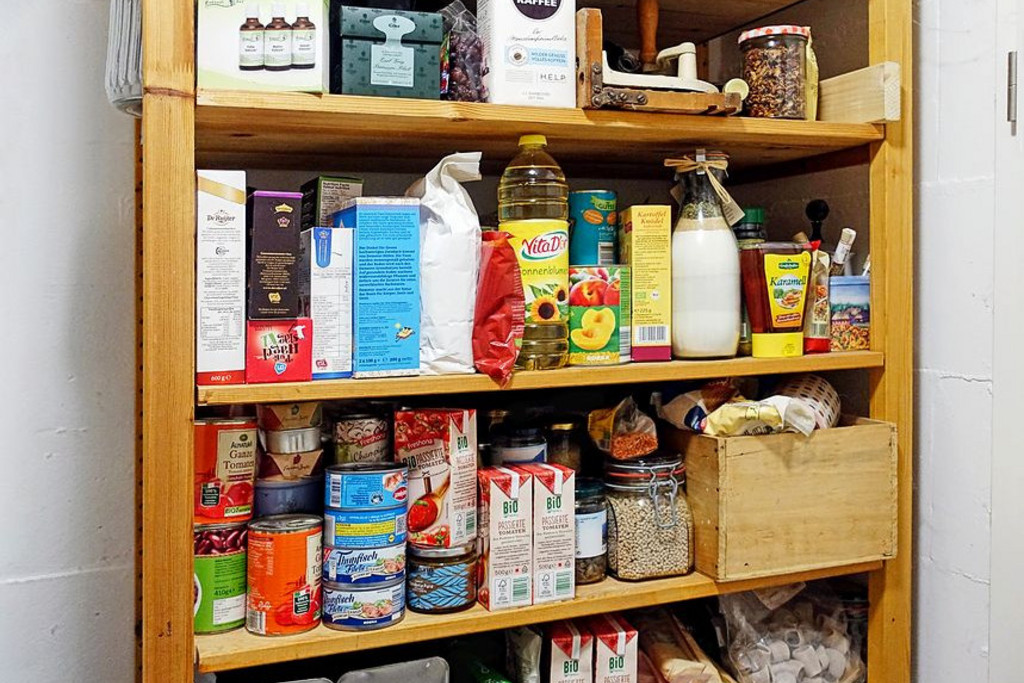
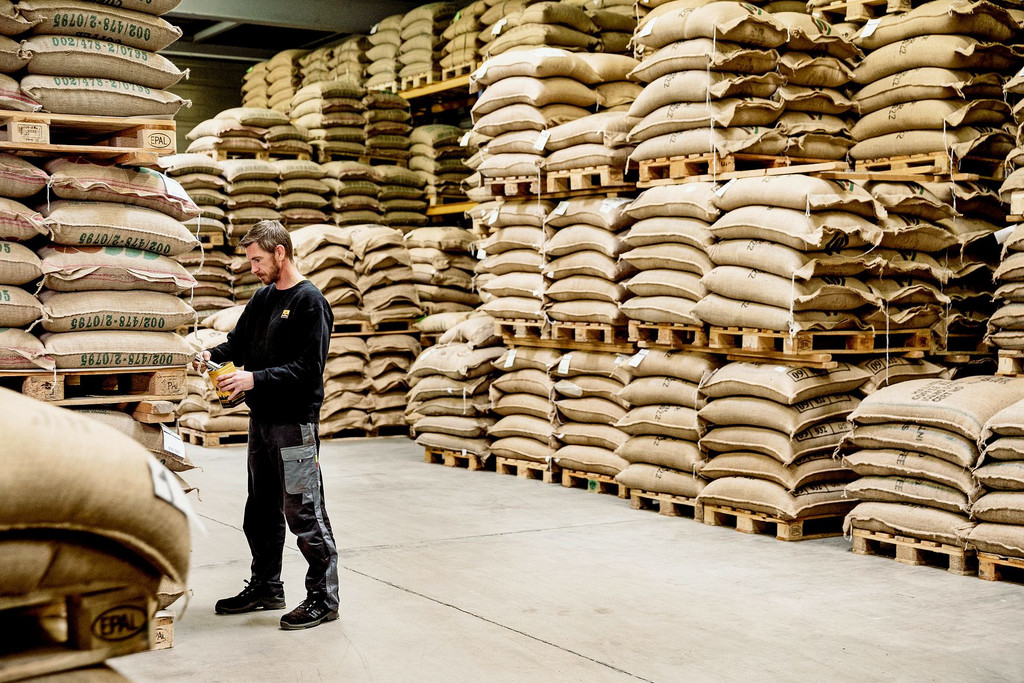
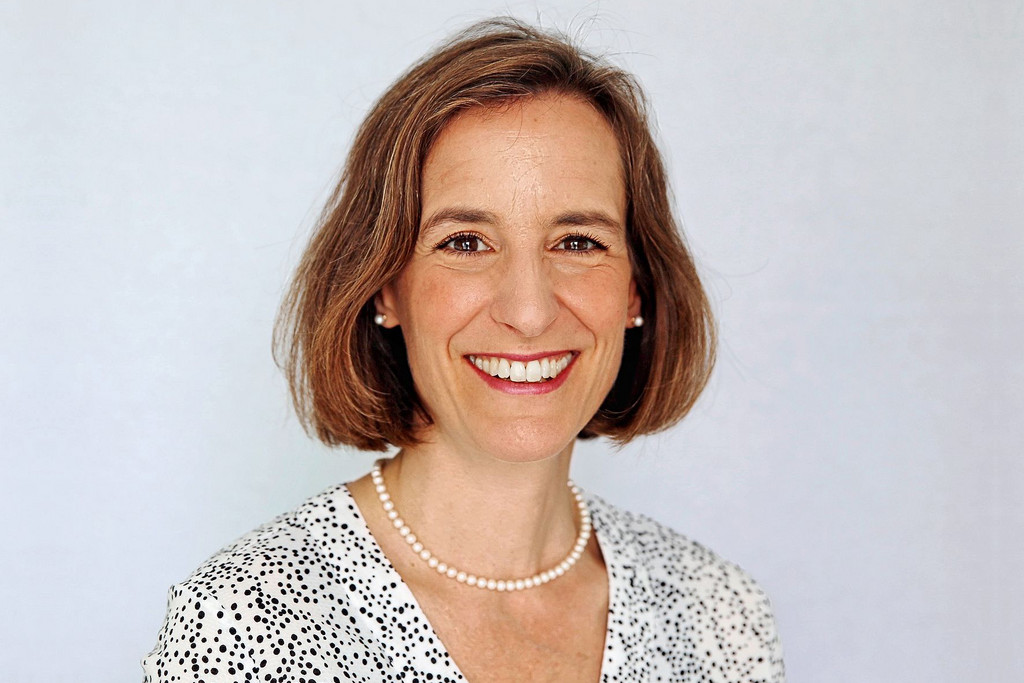



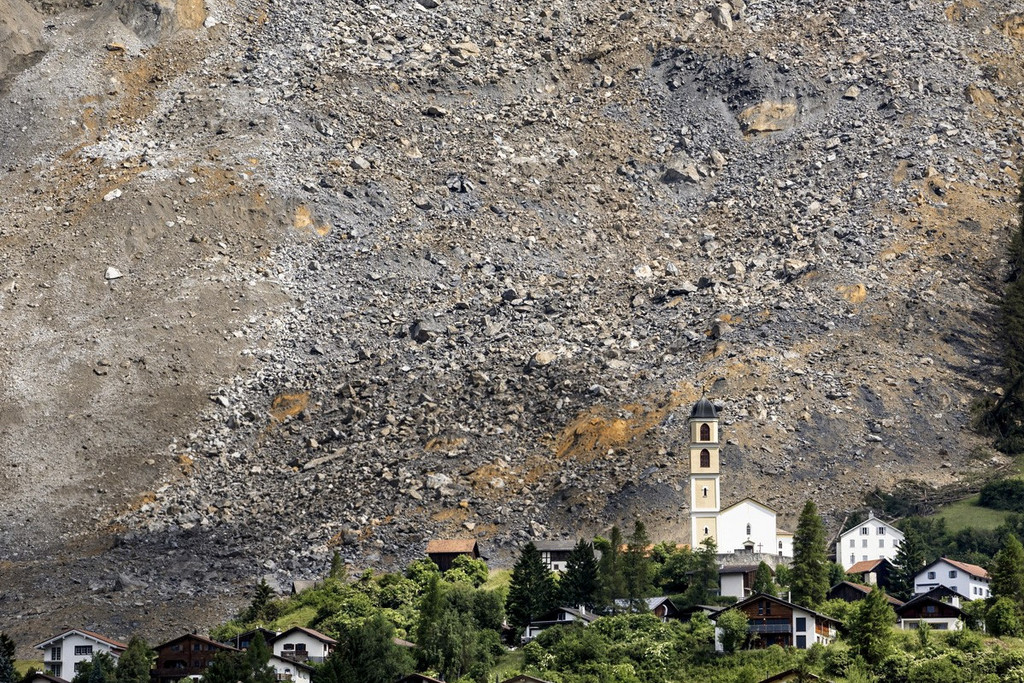




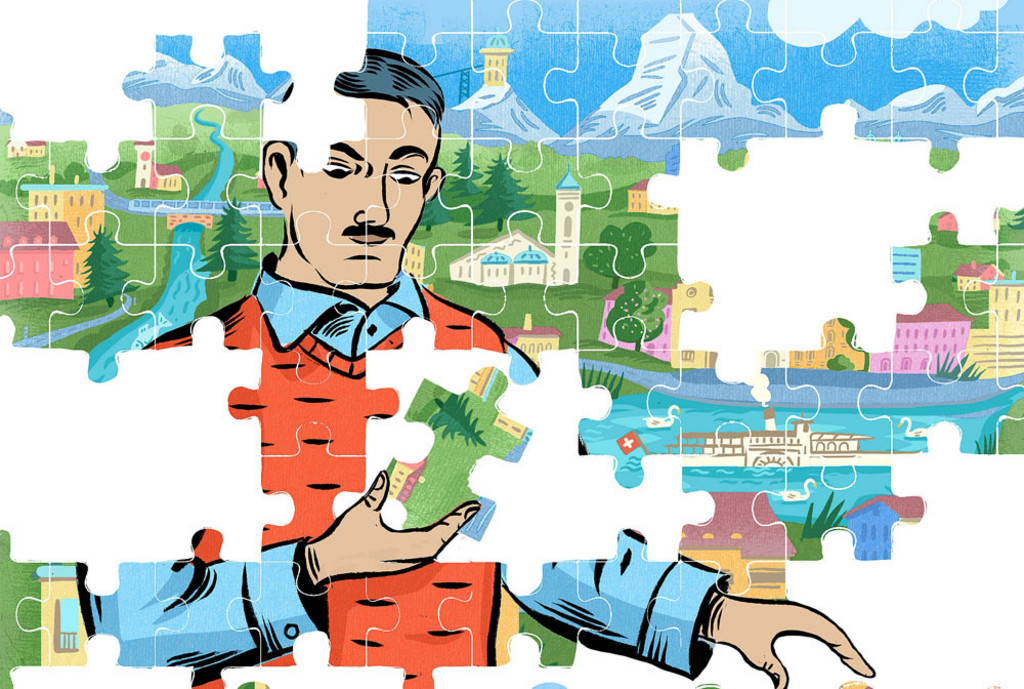
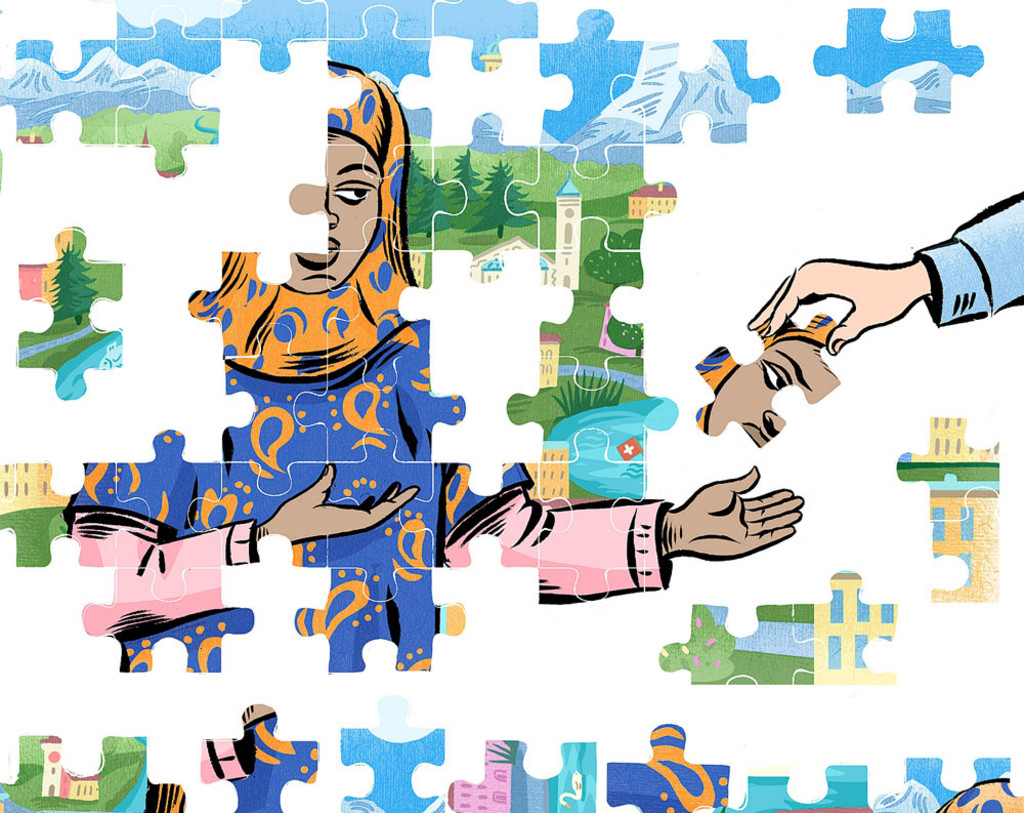
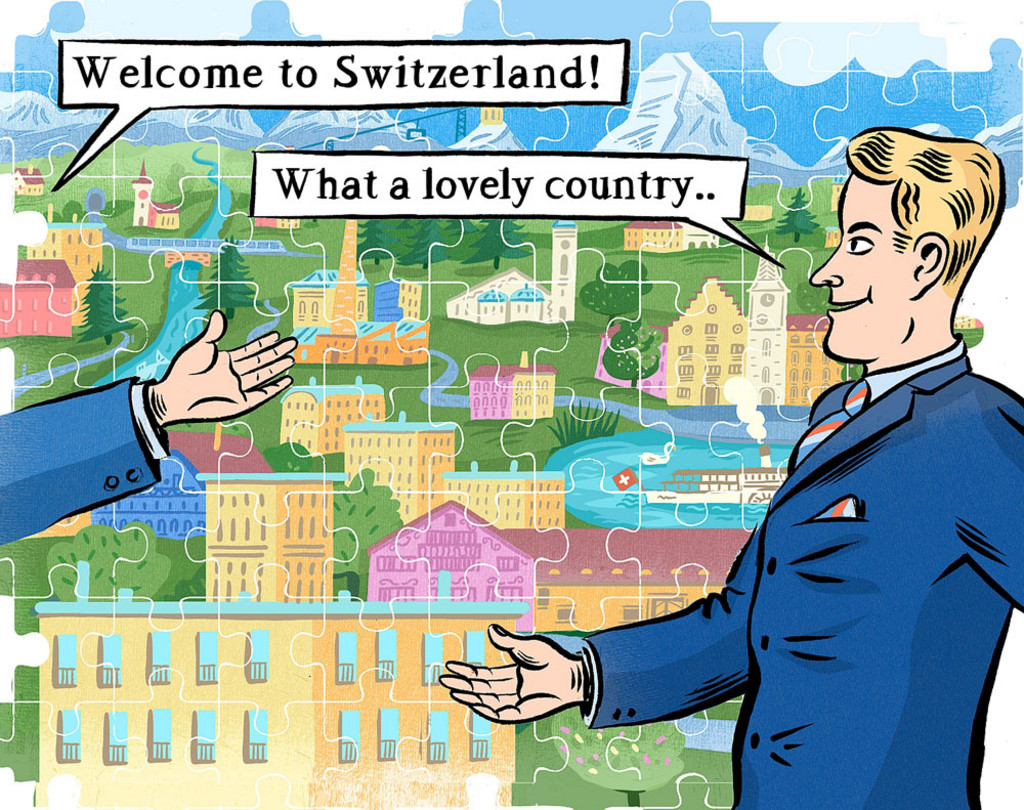
Comments
Comments :
Verstehe, dass Sie aufgebracht sind ob der kriminellen Ausbeutungstechnik westlicher Imperialkonzerne. Ich bin's nicht weniger und es ist eine Schande, dass Menschenrechtsinstitutionen wie die UNO, der Haag und viele andere mehr keinen halben Finger kruemmen in dieser Angelegenheit - eben so wenig wie sie es in Sache Terror tun. Aber die Rede ist von den sich nach Europa stroemenden Massen und deren dortigen Niederlassung. Um dieses Problem zu bewaeltigen bedarf es wesentlich mehr als Schuldgefuehle und ich bin nach wie vor der Meinung, dass hierzu als Basisiformation das erkennen der afrikanisch internen Denk- und Verhaltensnorm unablaessig sind. Schoengeistideologie - so edel sie auch sein mag - ist ganz sicher nicht hilfreich.
die Aussagen vor Jahren von Jacques Chirac habe ich nie
vergessen als er sagte "Frankreich kassiert immernoch
Steuern von den ehemaligen Kolonien" der Fall zeigt doch
eine gerechte Welt ist schwer moeglich weil ehemalige
Kolonialmaechte von der Ausbeutung selbst abhaengig
geworden sind. Afrika ernaehrt Frankreich und die EU
schaut weg. Frankreich war auch Aktivist bei der
Liquidierung Lybiens und nebst Frankreich sind auch
England und Amerika staendig im Krieg.
Auf Ihre Kommentare habe ich mit Argumenten reagiert, die schon
nur auf Grund des gesunden Menschverstandes plausibel sind.
Und ich habe auch meine el Koordinaten angegeben.
Wo bitte sind Ihre Reaktionen, Ihre Aufschreie, sollten Sie sich
doch damit abgefunden haben, dass Ihrer Argumentation das wichtigste fehlt???
Nämlich die Erarbeitung der notwendigen Basisinformationen.
Sollte die eine diesbezügliche Reaktion Ihrerseits ausgelöst haben sage ich mir Sie im Spiegel.
Man muesste sich erst mal die Frage stellen - was ist eine Religion? - Bei all dem was heute in der Islamischen Welt passiert - ist die Antwort nicht ermunternd!
Seid vorsichtig - Islam ist uns nicht gut gesinnt!
Haben Sie besten Dank für Ihren Kommentar.
Gerne erlaube ich mir, Ihren Informationsstand, wenn auch nur geringfügig, wie folgt zu ergänzen.
Wenn Sie die Westküste von Afrika von Nord nach Süd überfliegen sehen Sie unter Ihnen im Meer mindestens drei bis fünf europäische Fischfangfabriken operieren. Diese Schiffe sind mit den modernsten Echolotgeräten ausgerüstet und fischen auch in den Hoheitsgewässer der jeweiligen Länder. Und ziehen pro Netz um die 100to Fische aus dem Meer. Wenn sich nun ein Fischerboot der Einheimischen auch nur annähert wird es mit Wasserkanonen beschossen bis es elendiglich absäuft. Folge daraus. Den Einheimischen Fischern bleiben nur die Jungfische, die den Maschen der Netze enkommen. Der Not gehorchend muss der Fischer
sich mit diesen begnügen, denn er hat eine hungrige Familie zu-
hause. Und das tut der Fischer wohlwissend dass er damit den Fortbestand der Art gefährdet, jedoch seine Familie ist hungrig.
Mehr noch, durch den Raubbau der Europäer wird ein in dieser Gegend jahrtausende altes und bewährtes Ernährungssystem gekippt.
Der Fischer ernährte seine Familie und den Rest tauschte er mit dem Bauern gegen seine Kohlenhydrathaltigen Produkte. Somit waren beide wohlversorgt mit der notwendigen Nahrung.
In einem Punkt muss ich Ihnen Recht geben, Sie liegen im Trend, denn nichts ist moderner, als ohne jegliche Basisinformation zu lärmen, wie ein Wald voller Affen. Und sein Geschrei als erst als ultimo Ratio zu verstehen.
Quod erat demonstrandum
Sollten Sie die Courage haben sich weiter zu informieren, anbei
haben Sie meine el. Koordinaten balli_1943@yahoo.es
Ach übrigens, haben Ihnen die letzten Meeresfrüchte von der Migro, Coop, Denner etc. doch gut geschmeckt?e
Das westliche Kolonialschuldgefuehlsyndrom sollte endlich dem Realitaetsdenken ueber dessen was die Afrikanar unter sich als als "Norm" bezeichnen Platz machen. Waer fuer alle hilfreicher.
Anyway, this is a great article: informative, quite objective, so that I applaud the writers/editors. I wish I could read the press of this ilk both in Switzerland and the USA, where I live (having lived most of my life in Switzerland and where I return often).
I've just returned from a trip to Denmark and Sweden, where they recognize that immigrant integration is a huge challenge - despite the government's efforts/investments to adapt/integrate immigrants.
So, yes, the government MUST get involved. You cannot put the WHOLE responsibility on the shoulders of the immigrant - that is unrealistic and may hide a degree of hypocrisy. I now have ten years of experience living in the USA, where the same battle rages between the two political poles. I find the Swiss realistic. I don't want to believe that the Swiss population could devolve into the same American political quagmire. I have faith in the Swiss, which is why I asked to join them with citizenship.
Ihre obige Abhandlung in Sache Auslaenderintegration ist ganz einfach gut! Informationsmaessig sehr beschaulich und anregend zum faktentreuen Nachdenken.
Zu einem Punt moecht ich aber doch noch was hinzufuegen; nicht als Kritik Ihres geschriebenen, sondern als erwiterte Frag um des besseren Verstaendnis wegen. Und dies in Sache muslimischer Mischehen. Im allgemeinen ist es doch so,dass diese Mischehen auf moslimisch geschlossen werden und die Nachfolger dieser Mischehen fast ausnahmslos muslemisch bleiben und erzogen werden.Ob das in der Schweiz anders ist als allgemein weltueblich? Der Muslim kennt diesbezueglich im allgemeinen keine Toleranz. Und darin liegt wohl auch ein Gutteil als Begruendung zum Rueckgang dieser sogenannten Mischehen in der Schweiz. Taeusch ich mich?
Il n'y a plus que des élites autoproclamées comme vous pour refuser de voir la vérité en face. Le peuple souverain exiger que l'étranger se soumette à notre mode de vie, ou qu'il parte. Ceci, n'est pas une négociation.
Ich bin mir bewusst, dass die Schweiz ueberbevoelkert ist (deshalb bin in die USA ausgewandert) und die Einwanderung gebremst werden muss, aber Ausgenzung der in der Schweiz lebenden Auslaender kann nicht die Loesung sein.
Weiter so! Der A. hat mir sehr gut gefallen. Kristina Bergmann
Sie wollen arme Fluechtlinge in die Schweiz einpferchen, wo der Buerger weniger Platz hat als ein Chinese in China? Ziehen Sie die unbewohnbaren Teile des Landes am Lebensraum ab und Sie werden sehen, dass kaum ein anderes Land so ueberbevoelkert ist wie die Schweiz. Es ist hart in der Schweiz zu ueberleben. Sie meinen es sicher gut, aber Ihr Argument ist nicht durchgedacht.
Natuerlich muessen wir den Armen und Fluechtlingen helfen, aber es gibt bessere Loesungen fuer beide Parteien, zum Beispiel die Gruendung von neutralen, in die Weltwirtschaft integrierte UNO Fluechtlingsstaedten in Afrika und Asien, wo sich Fluechtlinge sicher fuehlen koennen, autonom ihre Zukunft planen werden und sich frei und vollends unter Ihresgleichen wirtschaftlich und sozial entfalten koennen. Jeder Fluechtling wuerde so eine Loesung einer Enpferchung in einem fremden, ganz anderen Land vorziehen. Hoeren wir auf sie und entscheiden Sie nicht so arrogant, dass Einpferchung in einer kleinen Wohnung fuer Menschen, die temporaer in einer misslichen, armen Lage sind, die beste Loesung sei. Punktum!
Weiter so! Der A. hat mir sehr gut gefallen. Kristina Bergmann
Es ist so schwer, ich habe das auf meiner eigener Haut erlebt ! NIEMAND hat mich in der ganzen Strasse ( Sackgasse - so hat Jeder Jeden gakannt ! ) begrüsst, obwohl ich mich jeden Tag bemüht habe und wollte integriert sein . Dann hat mich der reiche Schweizer geheiratet und obwohl ich schon vorher eine Ärztin war - plötzlich haben sich alle wahnsinnige Mühe gemacht ... nur ICH nachher nicht mehr ! Jahre habe ich dort gewohnt und alle haben immer so gemacht ,wie wenn sie mich nie gesehen haben und mich nicht kennen . Gott , was sind das für Menschen ? Nur bla , bla in der Zeitung, aber in der Wirklichkeit hassen sie alle ausser sich selber ! Auf die art : Ich bin der Schweizer und wer ist mehr !!! Ich habe immer gedacht , dass nur Amerikaner so sind.
Wünsche viel Glück ür alle !
Dr. Daniela Schacher
Die einzige Person die sich integrieren muss, ist Frau Sommaruga, denn sie sollte die Interessen ihres Volkes endlich umsetzten !
Eigentlich wollte ich auf Ihren dummen Spruch im gleichen Stil
reagieren, will mich jedoch nicht auf dieses Niveau erniedrigen.
Bitte nehmen Sie zur Kenntnis. Wenn man will und die richtige Einstellung mitbringt KANN MAN ALLES.
Ich habe während 12(zwölf) Jahren meiner Lebensarbeitszeit aus Drogendeliquenten, Kriminellen etc. anständige Berufsleute ge-
macht, die auch heuten noch sowohl profesionel, als auch mensch-
lich die nötigen Standards haben.
Und das ging auch, ohne eine profesionel untadelige Magistratin in dieser Form anzupöbeln.
Anbei meine el Adresse balli_1943@yahoo.es
Gerne erwarte ich, insofern der notwendige Mut Ihrerseits vorhanden ist, Ihre geschätzte Stellungnahme
Bevor man das Thema Flüchtling auch nur aur die Traktandenliste setzt, sollte man sich des Ursprungs dieser Tragödie auseinan-
dersetzen. Denn dann weiss man wovon man redet, eigentlich die Basis jeglicher Zivilisation, jedoch heute nicht mehr gefragt.
In medias res:
Sehen wir uns einmal die Kolonialpolitik der Westeuropäer der letzten 500Jahren an. Da wurden und werden ganze Kontinente schamlos ausgeplündert, ganze Landstriche verbrannter Erde zurückgelassen, das Bildungs- und Verwaltungsniveau auf dem tiefstmöglichenNiveau gehalten, ganze Meere leergfischt etc.
Schweizer, aufgepasst auch hier gibt es keinen Sonderfall Schweiz. Dieses Land hat seit Jahrhunderten von dieser Entwicklung profitiert und macht heute frisch und fröhlich mit
Nestle, Glenncore und andere.
Und nun geht in ganz Europa, insbesondere in meiner verdammten ersten Heimat das entsprechende Geschrei und Gejammer los.
Seit über 2'000 Jahren gilt das Gesetz dass Akktion gleich Reaktion ist.
Die armen Flüchtlinge holen sich doch nur das zurück, das unsere Vorfahren und unsere Generation ihnen gestohlen haben.
Aus dem historischen Kontext ist heute ersichtlich, dass es weltweit keinen Konflikt an dem der Westeuropäer teilweise mit dem Amerikaner nicht beteiligt ist.
DA UND NUR DA IST DIE SCHWEIZ DER SAUBERMANN FÚ DEN SIE SICH IMMER AUSGIBT.
Problem noch verschaerfen werden. In der Schweiz hat
man eine Willkommens-Kultur anstelle einer wirklichen
Hilfe zur Verbesserung der Situation in den Herkunfts-
laendern geschaffen, eigentlich braucht es ein Europa
mit souveraenen Staaten ohne EU und US-Diktatur. Nur
so kaeme man gegen das kuenstlich gemachte Fluechtligs
Problem an. Bislang haben Politiker, Medien und Meinungs-
bildner ganz einfach den Umfang des Zuwanderungsproblems
verschwiegen und Proteste mit primitiven Wendungen wie
"Rassismus" abgefertigt oder wegzensiert. Waehrend der
gesamte nahe Osten und Nordafrika mit Millionen Auswanderer einer Apocalypse gleicht und die derzeitige
Weltlage mehr als angespannt ist scheint es die breite
Masse kaum zu interessieren was auf uns zukommt.